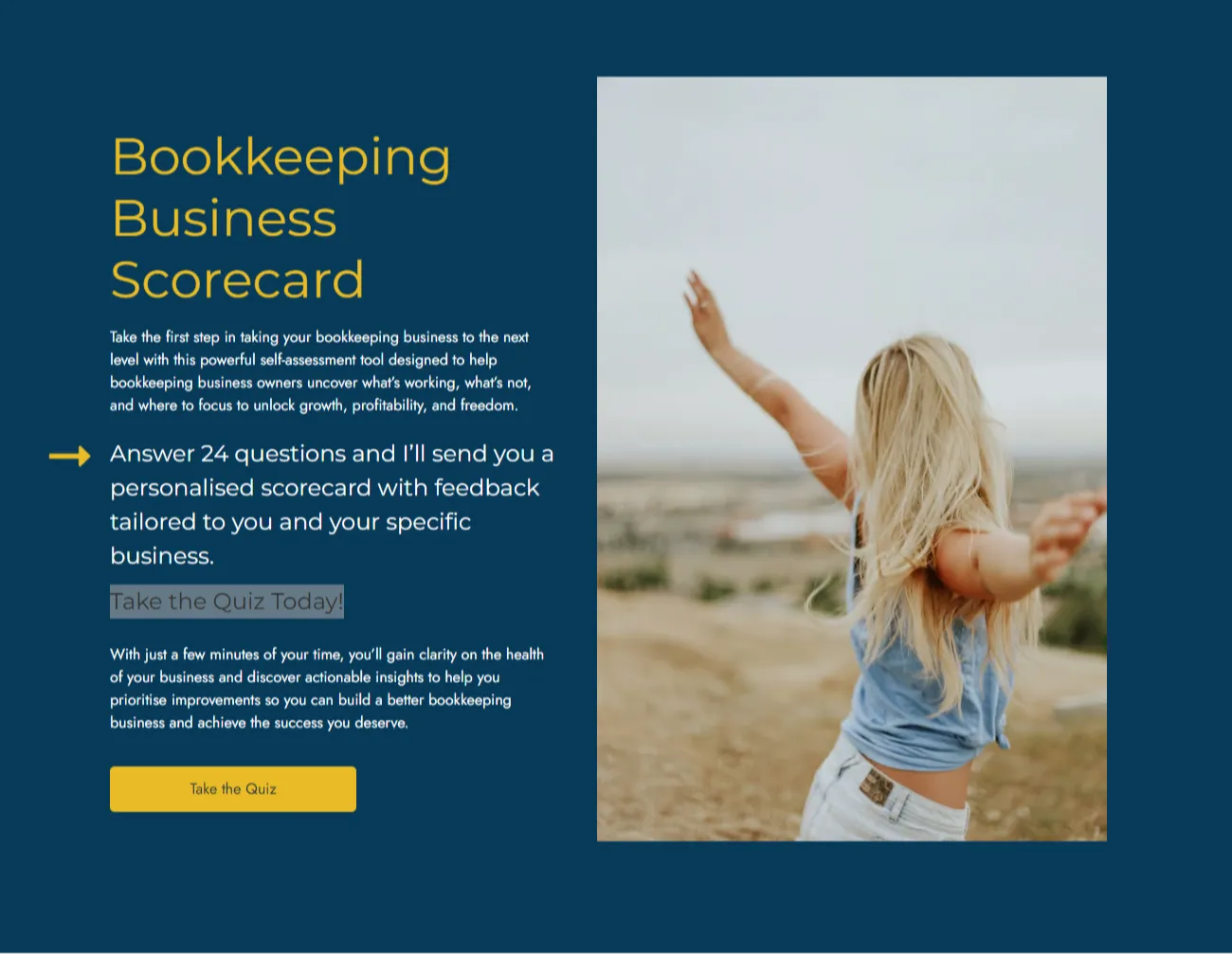Resilience for Bookkeepers
Sep 04, 2020
Hi there,
How are you coping?
It's been a mixed bag for bookkeepers, these past few months, right?
On one hand, as bookkeepers we've all been doing a wonderful job of supporting clients through Covid, many of us busier than ever with extra work bringing in increased revenue - which is gratefully received! We feel lucky to be in that situation in these times.
On the other hand, some of us have lost clients, consequently leaving a financial hole. That's a hard pill to swallow.
The extra support we've given to our clients has been stressful and has come at some emotional cost to us. It was, still is, difficult to keep on top of the wage subsidy information and it has been difficult to watch as some clients' businesses simply didn't make it, no matter how much help we gave them.
And then you throw in that many of us have also been parenting and homeschooling children, and that our partners have also been at home with us which brings challenges of their own (you know what I'm talking about, right?!)
With the Covid world as it is these days I thought it would be useful to share with you a little bit about resilience.
Resilience has become a bit of a buzz word in the past few years, and not without good reason. Turns out that resilience is a strong indicator of success in life, and it also has significant health benefits, particularly for our mental health.

Resilience is our ability to adapt and bounce back when things don't go as planned.
2020 has not gone as planned!
The good news is that resilience is not something that some of us are born with and some of us aren't. There are very real and very practical things that we all can do to develop and foster resilience.
Below are 3 tools that we can all do to foster resilience according to Dr. Lucy Hone in her 2019 Christchurch TED Talk, The three secrets of resilient people. It's well worth watching the video in its entirety here.
1. Resilient people get that sh*t happens
Accepting that suffering and stress is part and parcel of being human instead of dwelling on "why me?" or taking on a victim's mentality is key to becoming resilient. Suffering in some form or another does not discriminate and happens to everybody. As she says, "If you are alive, you are going to have to deal with some tough times."
I was talking with a friend of mine about acceptance during our Level 4 lockdown and he was saying that acceptance is a key AA principle as well -
"And acceptance is the answer to all my problems today. When I am disturbed, it is because I find some person, place, thing or situation – some fact of my life – unacceptable to me, and I can find no serenity until I accept that person, place, thing or situation as being exactly the way it is supposed to be at this moment."
- The Big Book of Alcoholics Anonymous (pg 417)
2. Resilient people are really good at choosing carefully, where they select their attention.
With this Covid situation, there is only so much we have control over. Having the ability to look at situations realistically and accepting what we can't change and focusing our attention on what we do have control over is "a vital, learnable skill for resilience." The key here is that this is a learnable skill.
One habit to develop in order to foster this skill is the habit of gratitude, finding things to be grateful for, whether it's in the moment or as a daily habit. Despite what is going on an "attitude of gratitude" has been proven time and again to have a raft of benefits including improved physical, emotional, and social well-being, and greater optimism and happiness.

3. Is what I'm doing helping me or harming me?
Dr. Hone says that this is the one thing that she gets the most positive feedback about, for the huge impact it has on peoples' lives, more than any other.
Once you get into this powerful habit it becomes easier to notice what's helpful and to flip the switch when it's harmful, and helps you to feel more in control.
Is it helpful or harmful to you to be scrolling through Facebook yet again? Is it helpful or harmful to you to be working 11 hour days? Is it helpful or harmful to you to be worrying at night about the client who's business is not doing so well? Is it helpful or harmful to you to have that (extra) glass of wine at night? Is it helpful or harmful to dwell on the way that person treated you?
It's kind of a tough, unusual time at the moment and I hope, as with any life challenge, that you have been able to take things in your stride and find the strength and courage to overcome and manage.

PS: Got any comments about this blog or about how resilience applies to our bookkeeping industry? Let's carry on this discussion over in The Business of Bookkeeping Facebook group.
Take the first step in taking your bookkeeping business to the next level!
With just a few minutes of your time, you’ll gain clarity on the health of your business and discover actionable insights to help you prioritise improvements so you can build a better bookkeeping business and achieve the success you deserve.



